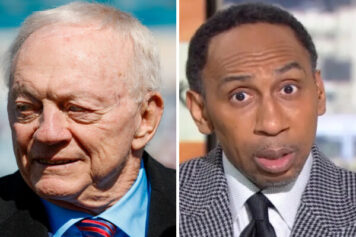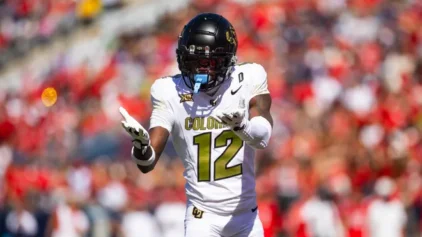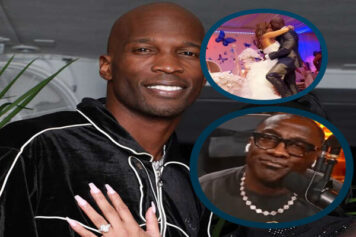Former Jackson State head football coach Deion “Prime Time” Sanders tweeted Saturday that he is “ashamed” of 31 NFL teams after Isaiah Bolden was the only HBCU player drafted this year. Fellow Pro Football Hall of Famer and television talking head Shannon Sharpe disagrees with Prime’s stance on any kind of HBCU bias in the NFL.
“I’m ashamed of the 31 other @nfl teams that couldn’t find draft value in ALL of the talented HBCU players & we had 3 more draft worthy players at JSU,” tweeted Prime.
One HBCU Player Drafted In 2023
Bolden, a cornerback and returner for Jackson State, was selected by the New England Patriots in the seventh round. Prime, now the head football coach at Colorado, congratulated Bolden via Twitter and said there were three more draft-worthy players at Jackson State.
On his sports debate show “Undisputed,” Sharpe was asked Monday about Prime’s comments and he disagreed, stating the NFL is a bottom line business, and where a player played in college is immaterial to the the bottom line of contributing to winning.
“The NFL is a business. The NFL doesn’t give a damn what color you are,” Sharpe told co-host Skip Bayless. “They don’t care. They want to win. Pro sports is a bottom line business. The only things that are on the menu, wins and losses. Now, how many guys can we get who can help us win? I don’t give a damn of their color.”
History Of Racism In The NFL
Once upon a time in the early days of professional football (1934-1946) NFL owners banned Black players from being on rosters. It was only when the integrated All-America Football Conference emerged to compete with the NFL that the owners relented on their racist policy.
By 1950 most NFL rosters had Black players signed.
This isn’t to say the NFL is devoid of racism today. There are still negative assumptions and beliefs about people of color and their ability to serve as head coaches, general managers, and QBs.
But most organizations want to win and don’t particularly care how they do it.
“What am I missing?” Sharpe continued. “There was once upon a time that was the case. Not just at HBCUs, there were Black quarterbacks that were good enough to play in the NFL that got overlooked … I’m gonna disagree with Prime on this one. I believe if the guys were talented enough to get drafted, I believe they would have gotten drafted.”
Sharpe is correct. If you can play and a team believes you can contribute to winning, a player will get drafted regardless of where they played collegiately.
The best rationale for Sharpe’s argument is that the league’s teams draft players with questionable character all the time, in the name of winning.
Between the scouting combine, pro days, individual workouts, and game film there are so many ways to assess a player’s potential. If a player grades out well according to a team’s criteria that player will get drafted.
Maybe the HBCU talent pool wasn’t as deep this year. Maybe Prime is just caping for one of his former players.
Yes, the history of racism and racial bias in the NFL are very real. There is plenty of evidence that it still exists today. But not in the case of undrafted HBCU players.



